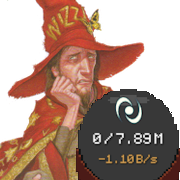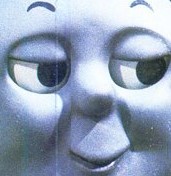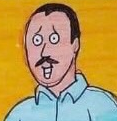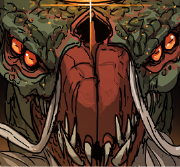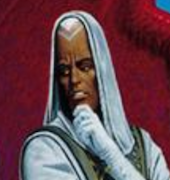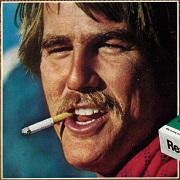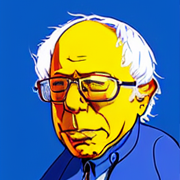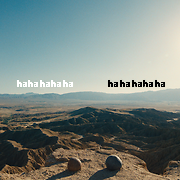|
Not really sure how they can narratively support that, John Wick is already in about the same place at the end of 3 that he was at the beginning of it Is he gonna do a crime revolution or something?
|
|
|
|

|
| # ? May 26, 2024 02:37 |
|
Late to one shot chat but I finished The Bear recently and and episode 7 had one of my favorite one shots of recent memory. The cut to black at the end with the only sound being the ticket printer goin chkchckchk over and over was perfect.
|
|
|
|
4 is gonna be him taking down the syndicate or whatever, that ends with a fakeout and the real baddy is revealed 5 is taking down the real baddy 6 is the soft reboot where he comes out of a second retirement halfway through the movie and finally dies
|
|
|
|
|
Maximo Roboto posted:This isn't even the finale, they're planning on making another three more John Wick films lmao This Chapter 5 Ballerina (spinoff that just started filming) Possible Sophie spinoff Possible Nobody crossover The Continental TV show (premiering on Peacock later this year)
|
|
|
|
Chris James 2 posted:The Continental TV show (premiering on Peacock later this year) finally https://www.youtube.com/watch?v=0vuOnVNiYtg
|
|
|
|
Good Soldier Svejk posted:4 is gonna be him taking down the syndicate or whatever, that ends with a fakeout and the real baddy is revealed spoiler dat poo poo also he's going to sacrifice himself to save some young homeless female assasin-in-training in 6 e: also a POC. and she adopts his dog afterwards Xaris has issued a correction as of 01:21 on Feb 14, 2023 |
|
|
|
Xaris posted:also he's going to sacrifice himself to save some young homeless female assasin-in-training in 6 john wick goes to braavos
|
|
|
|
elderly Keanu fights his twin brother with the exact same skills
|
|
|
|
YaketySass posted:elderly Keanu fights his twin brother with the exact same skills
|
|
|
|
wow so Borat did not originate waa waa wee waa
|
|
|
|
loved Severance and its good to know Walken's still got it
|
|
|
|
Durf posted:loved Severance and its good to know Walken's still got it the scene where hes saying goodbye to his innie is so good
|
|
|
|
keanu whipping his walker around in a 360 with ninja stars yeeting out of the legs
|
|
|
|
AnimeIsTrash posted:https://twitter.com/ComplexSneakers/status/1623704074615922696?lang=en why is it rated r is there going to be a lot of swearing or sex scenes
|
|
|
|
John Charity Spring posted:John Wick peaked with the nightclub sequence in the first film and everything after that has been a slowly deflating balloon keanu reeves is getting skinnier??? i didnt think he was that fat in the first place tho
|
|
|
|
i say swears online posted:john wick goes to davos
|
|
|
|
The tribute started with an introduction from Roger Durling, Executive Director of the festival. Durling pointed out the sheer impresiveness of the panel before introducing a series of clips, one for each of the films represented by the panelists. Following the clips, the panelists took the stage, with Kazuo Ishiguro (Living), Rian Johnson (Glass Onion: A Knives Out Mystery), Tony Kushner (The Fabelmans), Ruben Östlund (Triangle of Sadness), Lesley Paterson (All Quiet on the Western Front), Sarah Polley (Women Talking), Daniel Scheinert (Everything Everywhere All at Once), Martin McDonagh (The Banshees of Inisherin), and Todd Field (Tár) all joining. Conducting the panel was IndieWire Editor-at-Large, and she began by asking each of the panelists about their path to becoming a screenwriter. Kazuo Ishiguro made note of the fact that of the selection of writers on the panel, none were your stereotypical hardbitten screenwriter. In fact, the panelists came from a whole host of eclectic places, including Kazuo's own history with novels. For him, literature always seemed to be the main attraction for him, though Living allowed him to tye a lot of ideas from his work together. Rian Johnson started out in the world of film as a kid, just making movies with his friends. As he grew, his work expanded, with the screenwriting side of things initially just serving as a vehicle for creating his own projects. However, he eventually fell in love with it. Lesley Paterson was originally a triathlete, though the imagination and world-building exercises conducted during training helped her to move into writing. Sarah Polley was an actor as a child. However, once in her 20s, she dropped out of the profession, realizing it wasn't the right thing for her. Eventually, partly because of the powerful experience she had watching The Thin Red Line, she decided to move into the filmmaking world, falling in love with it upon making her first short feature. Daniel Scheinert shared that he (along with Daniel Kwan, the other half of The Daniels), came up in the industry through their work on music videos. He never quite imagined himself, noting that Kwan was more of the traditional writer. However, as they looked to direct their own projects, writing became important. Todd Field began his journey into writing upon learning that he needed three short scripts written for an upcoming directing program at AFI. Speaking with his father-in-law, Bo Goldman, Field heard a few key pieces of wisdom, advising him to unplug the phone, get up at the same hour every day, and write at the same hour every day. Following these words of advice, Field managed to get the scripts done. Martin McDonagh started off by writing plays, though his dream was always to work in the world of film. Eventually, he created Six Shooter, an Oscar Award-winning short that set him down the path toward screenwriting success. Ruben Östlund shared a key part of his idea development process, pitching his ideas to everyone he knows. This helps him to refine his story and allows him to tap into the experiences and stories of those around him, further refining and building out his ideas before hitting the page in earnest. Tony Kushner was originally an acclaimed playwright, coming into the world of film through an encounter with renowned filmmaker Steven Spielberg. After editing a collection of writings exploring Judaism and Zionism, Spielberg got in contact with Kushner, eventually asking him to do a draft of Munich. Thus began a frequent and fruitful collaboration between the two. Moving on from her first question, Thompson dove a bit deeper into the work of each writer. Kazuo shared an anecdote about a chance encounter with Living star Bill Nighy and how it sparked the film itself. Rian spoke to his efforts to take the whodunnit form, something that used to be a mechanism for exploring the challenges of the time, and dust off the cozy period elements that have managed to creep in, making it once again a sort of microcosm of the larger world. He also responded to the idea that his Miles Bron character was a one-to-one critique of a certain tech titan, noting that his focus was more on the workings of power structures and a more general jab at the world of tech douche-bags. Lesley shared a story about the overlap between her athletic and film pursuits, explaining that she had to win a triathlon with a broken shoulder to make the money needed to keep the film rights to All Quiet on the Western Front. Which she did. She also broke down the idea behind the opening of the film, explaining that it represented the main theme of the film, that to some, uniforms mattered more than the people who wore them. Sarah dove a bit deeper into the development process behind Women Talking, sharing that she actually wrote different script passes for each character in the film, helping to track it all out and give the characters space and respect. Sarah also touched on the decision to keep the threat off-screen, noting that to her, showing sexual assault is rarely additive, both in terms of understanding and messaging. Tony talked about the process of getting Spielberg's life story and convincing him to turn it into a picture. Apparently, Spielberg had considered the idea, with Kushner even doing a draft of an episode later on in the story of his life. However, it wasn't until Spielberg's mother passed and his father was in his hundreds that things changed. After a particularly volatile experience working on West Side Story together, the pair did some interviews around Spielberg's past to sort of deal with the tension between them, eventually convincing Speilberg it was time. Speaking to the film's somewhat unorthodox structure, Kushner noted that it was very different for Spielberg, but also that the sort of epic, episodic nature, covering 3 states and 12 years, was always non-negotiable. Daniel talked about the pull towards something bigger he felt after going through the Sundance circuit. In that way, Everything Everywhere All at Once was almost his and Daniel Kwan's shot at a Marvel film, with the pair looking at what they would do with that kind of large-scale action piece. Daniel also spoke to the sheer length behind the film's development, with constant delays giving him and Kwan the space to really refine the script. Todd also spoke to the development process, taking special note of the sort of free reign he was given on Tár by Focus. The character had been running around his brain for some 10-odd years, with the focus more on her role in a particular power structure than her specific relationship to classical music. Todd had met Cate 7 years prior and was astounded by her ability to think like a filmmaker, really engaging with projects holistically. Martin talked about the tonal balance of his work, thinking about his projects more as dramas than comedies. He also talked about a certain scene in Banshees as pivotal, helping to open the audience's eyes to another side of his characters. As for the hard artistic bent towards isolation represented by one of the characters in his work, Martin noted that he doesn't quite subscribe to it. Ruben went into the elements from his real life that made it into the film, like a fight with his wife about who should pay the check early on in their relationship. He also spoke about the lengthy process of editing the vomiting scene in Triangle of Sadness, sharing how the months spent in the editing room desensitized him to the grossness, a fact he became aware of upon seeing it with a new audience. Thompson also asked the panel about their process. Kazuo noted that as a relative newcomer to the form, he didn't quite have one, writing more freely, as he did with his novels. Rian shared how his dad took him to a writing seminar with Robert McKee, helping to inform his understanding of structure, something he values highly in the writing process. Lesley explained that she works with another writer, often focusing more on structure while he works more moment to moment. Sarah said that for her, the process changes from film to film, with the added responsibility of children forcing her to grab every second she could to get the script down, helping her to be less precious about her work. Tony noted the sheer terror he feels while writing, hoping to avoid it at all costs and almost having to trick himself into it. Daniel talked about how important collaboration is to him, with the process being very messy and drawn out and requiring a constant slew of new approaches. Todd spoke about how important working with others was and the difficulty of truly knowing when you're actually ready to start writing. Martin, unlike many of the other panelists, is not an outliner, preferring to let the writing happen and the ideas/events surprise you, a process which gave us the idea of Brendan threatening to cut off his fingers in Banshees. Ruben likes having an idea in his head, letting it bounce around and attract other sources of inspiration. He also talked about the importance of not keeping your ideas in, letting others hear and play with them. The panel ended with Thompson having the writers share the most difficult scenes to write in their recent work. For Kazuo, it was the ending, struggling with the burden of creating something that really allows the film to linger in the audience’s mind. For Rian, it was a key expository character introduction scene partway through his film. For Lesley, it was figuring out how to differentiate the action sequences. For Sarah, it was making a key apology really cover all that a character needed to hear. For Tony, it was understanding what the audience needed from a scene where two characters have strange, but telling reactions to a film. For Daniel, it was managing to lay the dramatic groundwork of the film while still getting the audience into the fun of the project. For Martin, it was creating an ending with both subtlety and sincerity. For Ruben, it was dealing with the structural decision of having the movie almost start anew in the third act.
|
|
|
|
Roger Durling, executive director of the Santa Barbara Film Festival, started off the panel with a brief introduction, noting the remarkable slate of panelists and queuing up a series of clips from each of the films represented by the panel. Next, the panelists, including Jerry Bruckheimer (Top Gun: Maverick), Dede Gardner (Women Talking), Kristie Macosko Krieger (The Fablemans), Jonathan Wang (Everything Everywhere All at Once), Malte Grunert (All Quiet on the Western Front), Jon Landau (Avatar: The Way of Water), Gail Berman (Elvis), Todd Field (Tár), and Erik Hemmendorff (Triangle of Sadness) took the stage. They were followed by Glenn Whipp, film and television journalist for the Los Angeles Times and moderator of the discussion. Gail Berman dove into how Covid affected the production of Elvis, with Tom Hanks' Coronavirus diagnosis delaying things for over six months. While most returned home, star Austin Butler and director Baz Luhrmann stayed there. As for how the project itself got started, Gail shared how she was friends with someone at the company with the rights to the Elvis story. In thinking of who could tell his story in a new way, they settled on the incomparable Baz Luhrmann. Erik Hemmendorff talked about his history with director Ruben Östlund. The pair exited film school together, sharing the drive to want to create something new, even as the producers they were pitching to only wanted retreads of the kinds of films that had already been shown to be successful. Triangle of Sadness also faced Covid difficulties, with the film shut down when Woody Harrelson couldn't fly in. Erik then talked about his cameo role in the film, noting the multiple takes required and his anxieties over getting fired. Finally, Erik shared how he made Ruben take a cruise before filming to get ideas for the project. Kristie Macosko Krieger discussed Spielberg's personal uncertainty over The Fabelmans. She was also of two minds about the project. Before reading the initial draft, she was concerned it could turn out too small and personal, more a sort of expensive therapy exercise than a workable story. However, after giving it a read, she found it had a wider appeal. Kristie also made note of the importance of Spielberg's sisters to the film. They approved its production, helped correct the finer details on set, and gave writer Tony Kushner material to add to the texture of the script. Speaking to Spielberg's experience on The Fabelmans, Kristie shared further insights, noting how he had to be much more vulnerable, working a great deal with the actors to really get the spirit of his family right. Speaking with Jon Landau, moderator Glenn Whipp took a brief diversion to discuss the future of the movie theater business. The panel was united in their belief in the enduring power of the cinema and its continued importance. Jon was particularly insistent, noting how the community and commitment that marks the theater-going experience is vital. He and Jerry shared how these fears over movie theaters dying out are not a new thing, popping up every time a big change affects the medium. Jon also answered questions about the future of the Avatar franchise, noting that the live-action sections of movies 2, 3, and Act 1 of 4 have all been shot. Even so, they will still take a great deal of time, as all of the digital effects work still needs to be done. Todd Field talked about his decision to write, direct, and also produce his film Tár. For him, there was just no other way to work, especially with budget constrictions keeping there from being more than one American producer on site. Todd also shared some of the difficulties involved in this film, including the convincing required to get the Dresden Orchestra, which votes democratically on all matters, fully behind the film. Apparently, the orchestra didn't decide until just days before shooting, with no Todd having no plan B in sight. Jonathan Wang walked the audience through the way that Everything Everywhere All at Once came together on such a shoestring budget. Having only 14 million to spend, the project required a lot of outside-of-the-box thinking, including only using one defunct mortgage building as the set for the entire film. Jonathon also addressed the philosophy underlying the film's production, with the filmmakers set on creating a more humane working environment. They would definitely put up guardrails when necessary, but for the most part, they wanted to treat everyone well, getting them invested and feeling like they were cared for. Malte Grunert spoke about the sheer importance of All Quiet on the Western Front in Germany. The book is like a canonical text, so it was vital to get things right. Because of this, the critical response was a bit more specific, focusing on the changes made from the book. Malte also spoke about the process of casting the actor for Felix, sharing that he was originally a part of the theater world. Jerry Bruckheimer talked about finally scoring an Oscar nomination, calling it a real thrill. Bruckheimer also spoke about the impact of Covid on Top Gun: Maverick, noting that Tom Cruise's insistence on a theatrical release forced its release to be pushed back. However, this also gave the film its legs, bringing people back to the theater in droves. Gail piped up here, noting that it was thanks to Top Gun's impact on the moviegoing audience that Elvis was able to do the numbers it did. Bruckheimer also shared why the film was so powerful, putting it down to the film's emotional core and the attention paid to interpersonal relationships. Dede Gardner noted why Women Talking felt so important to her, explaining that its focus on people coming together, listening, and even changing their minds felt especially poignant in today's day and age, where people are so siloed in their own echo chambers. She sees the film as widely applicable, with the decision to stay or leave dramatized in the film being much like the smaller decisions we make every day. Dede also noted how the film was deeply hopeful, focusing more on what the future could be than just adjudicating the past. Speaking about the rewards of producing, Malte shared a fascinating story. Working as a driver for a big production in Berlin, Malte noticed that things didn't seem to be going so well. As such, a bigwig producer was brought out to fix things. Eventually, the film was released, and it seemed totally fine. This made Malte realize what an interesting job "running the circus well" could be. The producer in question, the one Malte drove in who fixed everything up? It was none other than fellow panelist Jon Landau. The conversation ended with panelists giving some advice to aspiring producers. Jonathon talked about the importance of being aware of currents in the world and staying grounded. Sharing a quote from Kettering, he noted that "a problem well-stated is half-solved," seeing film as a key way to clearly articulate the issues we face. Kristie, pulling from her days as an assistant, emphasized the importance of working hard, asking questions, and looking for mentors. Jon talked about treating everyone in your orbit well, as you never know who around you might be in a position to offer you your next job. Jerry, sharing a bit about his background in advertising, explained the way that being friendly, committing to your work, and asking questions can help you get ahead. Erik noted how finding a crew of people to share your troubles and triumphs with can be vital. And, finally, Gail spoke about an experience with a particularly cynical podcaster, explaining how it made clear to her the importance of truly believing in your work.
|
|
|
|
ffs
|
|
|
|
i aint reading all that but i'm happy for you or sorry that happened
|
|
|
|
Some Guy TT posted:The tribute started with an introduction from Roger Durling, Executive Director of the festival. Durling pointed out the sheer impresiveness of the panel before introducing a series of clips, one for each of the films represented by the panelists. Some Guy TT posted:Roger Durling, executive director of the Santa Barbara Film Festival, started off the panel with a brief introduction, noting the remarkable slate of panelists and queuing up a series of clips from each of the films represented by the panel. very interesting
|
|
|
|
Concerning Edit oops wrong thread
|
|
|
|
Durf posted:loved Severance and its good to know Walken's still got it 2022 was a real banger for streaming shows and I think Severance might be the best in breed
|
|
|
|
Some Guy TT posted:why is it rated r is there going to be a lot of swearing or sex scenes It better tbh
|
|
|
|
whats a good oscar nominated movie on netflix that i should watch
|
|
|
|
I'm catching up on the shows I wanted to watch during my childhood but never could. I'm currently watching the first Gundam movie compilation of the original series. I'm having fun.
|
|
|
|
YaketySass posted:elderly Keanu fights his twin brother with the exact same skills After fighting a giant robot And then under observation of a very well dressed bald man a british lady appears to introduce him to the ICA initiative
|
|
|
|
Some Guy TT posted:why is it rated r is there going to be a lot of swearing or sex scenes it literally says it in the little box next to the big letter R "language throughout
|
|
|
|
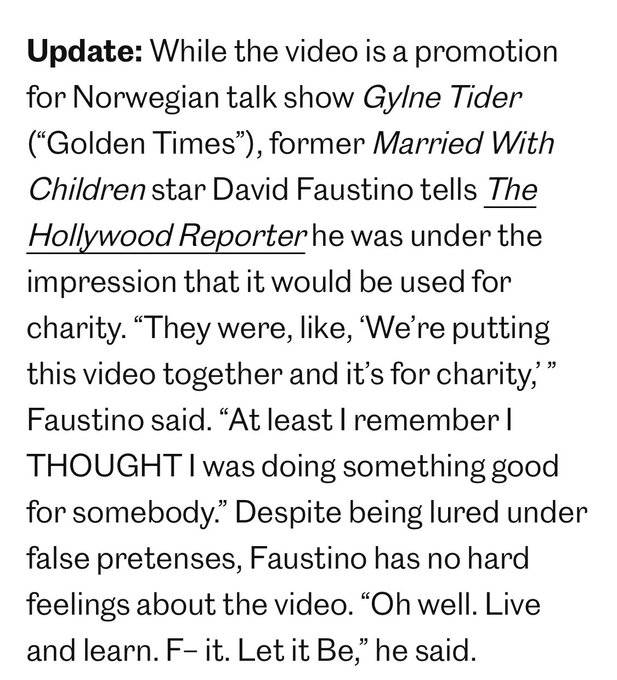
|
|
|
|
Some Guy TT posted:whats a good oscar nominated movie on netflix that i should watch Rrr
|
|
|
|
i assume this is for something problematic?
|
|
|
|
https://twitter.com/KarenAttiah/status/1625202774005669889
|
|
|
|
https://twitter.com/guardian/status/1625214717349224454 thread title plz
|
|
|
|
https://twitter.com/ThePlaylistNews/status/1625175487189520385 i feel like this is kind of ludicrously dysfunctional for what is supposedly the most advanced film industry in the world
|
|
|
|
Some Guy TT posted:https://twitter.com/ThePlaylistNews/status/1625175487189520385 it's advanced enough where you can reshoot the entire film in post yeah. 90% of f&f is car chases and fights. they probably knock the dialog scenes out in a week and a half it's probably something really mundane like pushing Lin out of royalties or something so they all have to pretend like the whole script was rewritten theflyingexecutive has issued a correction as of 06:25 on Feb 14, 2023 |
|
|
|
how do you even write a fast and furious script so bad the director cant salvage any of it is the plot about bringing paul walker back from the dead and giving all the other characters magic powers
|
|
|
|
when german men smear poop in your face it means they like you
|
|
|
|
playtime is OVER
|
|
|
|
gradenko_2000 posted:playtime is OVER https://www.youtube.com/watch?v=FhHeGZoWl0g
|
|
|
|

|
| # ? May 26, 2024 02:37 |
|
Some Guy TT posted:Roger Durling, executive director of the Santa Barbara Film Festival, started off the panel with a brief introduction, noting the remarkable slate of panelists and queuing up a series of clips from each of the films represented by the panel.
|
|
|



